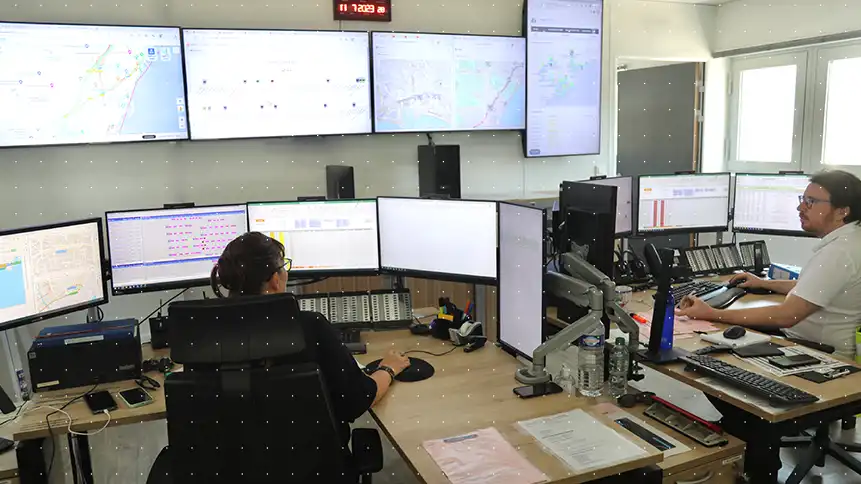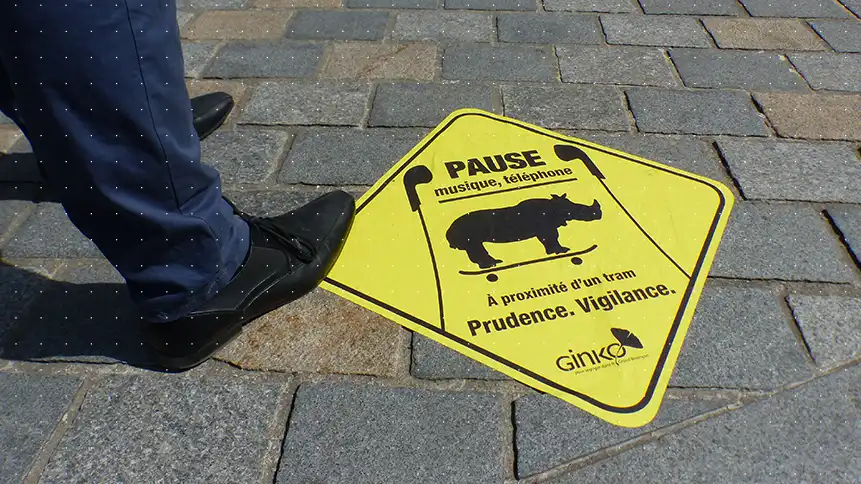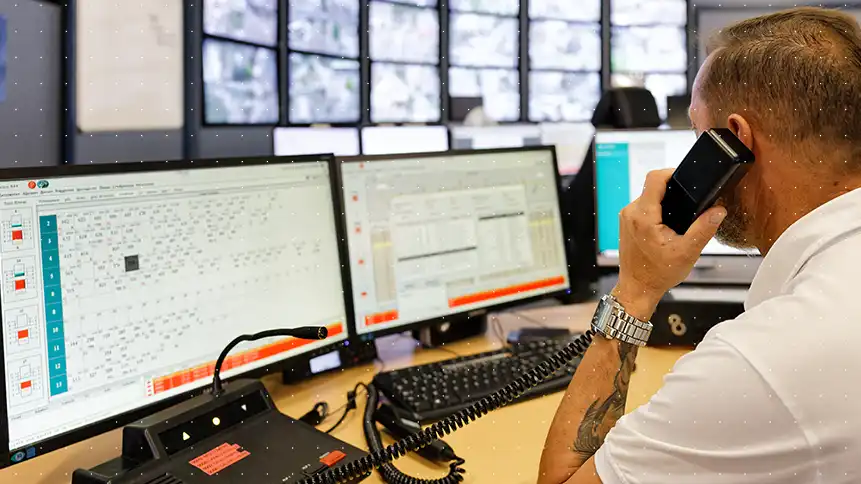For Keolis, safety is an absolute imperative. The Group is committed to ensuring that its passengers and employees enjoy safe and trouble-free travelling conditions on all the public transport networks where it operates. The challenge here is therefore to deploy increasingly safe and attractive shared mobility services to reassure and meet the high expectations of passengers and public transport authorities (PTAs).
Goal: zero at-fault accidents
On all its networks, Keolis deploys a stringent approach of continuous improvement in terms of safety. Its Keolis Way corporate project contains a single goal: zero at-fault accidents in public transport.
High safety standards
For its safety policy, Keolis draws on a common safety management framework, rigorous procedures and local action plans tailored to each network. In London, the Keolis Amey Docklands subsidiary has deployed a three-year programme aiming to better understand the cause of incidents, prevent them and transition towards a learning organisation.
A dedicated programme: Impact Safety
In 2023 Keolis began the rollout in France and abroad of its programme Impact Safety encompassing five managerial rituals and four safety excellence practices.
Safety, a priority in training
Because safety depends above all on employees’ skills, Keolis develops a proactive training policy on safety. Employees are offered training programmes and talks covering a variety of topics, including operational safety, occupational safety, public health, passenger risks, mental health and more.

Initiatives to raise public awareness
Keolis and its subsidiaries conduct a wide range of initiatives to raise safety awareness among the general public, passengers and road users. School audiences are also a prime target. The Group uses creative methods and incentives to encourage virtuous behaviour, including so-called "nudge" techniques. This concept is used in particular to encourage young people to fasten their seatbelts on buses. With the 'Malassis' innovation (meaning “not sitting comfortably”), an unfastened seatbelt is an uncomfortable hindrance for the passenger, thereby compelling them to buckle up. Keolis also rolls out offbeat advertising campaigns. Launched in Australia and deployed in several subsidiaries in France, the "Karlo the Rhino" prevention campaign met with great success in raising awareness among pedestrians and other road users of the dangers of getting too close to a tram line.
Making public transport safe places for everyone
Keolis takes steps every day to make sure that each and every one of its passengers can travel in peace of mind on public transport.
Preventing and reducing antisocial behaviour and assaults on people (passengers and staff) and against goods (theft or vandalism) and the development of a feeling of safety in vehicles and at stations and stops are all fundamental goals.
The Keolis group’s security policy incorporates all the risks of unlawful behaviour, in view of the local environment and their regular assessment. The policy revolves around six main focuses:
Prevention among all audiences
The Group deploys a range of preventative initiatives:
towards young people through talks and visits to primary and secondary schools in particular;
through campaigns to prevent antisocial behaviour and violence on transport, and raise user awareness to the risks, the security measures that can be taken, and how they can report incidents and assist victims.
A reassuring and dissuasive human presence
Staff members dedicated to risk prevention and transport security are out on the ground every day. These can be safety officers to help prevent antisocial behaviour and conflicts, approved revenue protection officers who levy fines for offences committed on the network, or security officers, whether in-house (such as in Lille, Bordeaux and Utrecht) or outsourced, who ensure that the public transport environments remain safe and respond to situations when necessary.
Solid security partnerships
Keolis works in close association with local police services to make transport facilities safe and secure. Joint operations are run regularly. Partnerships draw on a wider range of local organisations working in security and prevention: non-profits, local authorities, ministry of Justice, victim aid charities, social outreach structures, etc.
Effective equipment
Keolis operates vehicles fitted with video protection cameras. Alert systems also facilitate rapid communication with the police in the event of an incident.
Preventing sexist behaviour and sexual harassment
Keolis trains all its staff specifically in these issues. The deployment of awareness campaigns supports this approach and encourages victims and witnesses to report incidents. To this end, it has set up dedicated alert and reporting systems. As part of this approach, Keolis signed a partnership agreement with Umay in 2023. On this application, already in place in Lyon, passengers can share their journeys with people they trust, report incidents and find "safe places" nearby if they feel threatened. Meanwhile, in Bordeaux, Besançon and Lille, the "Ask for Angela" system enables victims to ask for help urgently from speakerphones in light rail vehicles and metro and railway stations.
Exploratory walks, which involve actively listening to passengers, are a powerful preventive tool, as they enable a diagnosis to be made on the ground and lead to concrete solutions to improve safety and the feeling of safety on the transport lines concerned.
Adaptation and continuous improvement
Security measures require adaptation to local issues. Keolis supports public transport authorities in developing and implementing public security policies, by proposing innovative and effective measures to meet the various challenges.

The Group is committed to improving transport security in France and abroad through operational partnerships with public security forces. In Manchester, the deployment of the TravelSafe partnership, in cooperation with Greater Manchester Police and Transport for Great Manchester, has led to joint actions being defined and conducted to provide coordinated responses to security issues on the Manchester network.
This approach is articulated around three strategic pillars:
- Improving the feeling of safety in transport
- Dissuading people from committing offences and engaging in antisocial behaviour on the transport network
- Promoting and encouraging good behaviour and reflexes.
